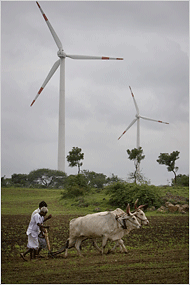
This week, the Important Media Network has committed to highlighting some of the women that are making the world a better place. At Inspired Economist, we thought we’d take part by profiling a great sustainable woman CEO every day this week. See previous posts on Kim Jordan, CEO of New Belgium Brewing, and Eileen Fisher (of high end apparel company with her name) then check in each day this week to see who we have next!
Irene Rosenfeld, CEO of Kraft Foods, has spent considerable time and energy integrating sustainability into the company’s business strategy and growth strategy decisions. Under Rosenfeld’s leadership, the company set aggressive sustainability goals that are now part of how all its business units are evaluated, so it’s on leaders’ minds, who then apply the concepts to manufacturing within business units.
While skeptics of Kraft and other industrial food giants will clearly point out that a grand majority of the company’s products are not exactly high on the health and sustainability scale, Rosenfeld’s leadership has focused on creating value and documenting business success through integrating sustainability. In large companies, this methodology is often the best way to steer the ship…slowly (but surely)…in a more sustainable direction.
Globally, since 2005, the company’s eliminated more than 116 million pounds of packaging material; made a 21% reduction in plant water consumption; a 12% reduction in plant energy usage; a 14% reduction in plant energy-related carbon dioxide emissions and a 14% reduction in plant waste. And Kraft Foods is the world’s largest buyer of coffee and cocoa from Rainforest Alliance Certified™ farms – with nearly 30,000 metric tons of coffee and 3,300 metric tons of cocoa in 2008.
The company began rethinking its systems with life cycle analysis, finding that carbon emissions for turning excess cheese waste into concentrated whey and sending it off to be processed for animal feed had a higher footprint than simply doing waste to energy on-site. So Kraft began to turn cheese into energy, and cut 25% of its emissions as a result.
To check out the rest of Important Media’s Focus on Women this week, check out an archive of this week’s women’s issues posts here!


